Thailand's government should urgently send ethnic Rohingya children from Burma and their families to safe and open family shelters, Human Rights Watch said today. New research documents abuses by Thai authorities, who should take action against camps in southern Thailand used for trafficking Rohingya and punish officials complicit in abuse.
As weather conditions improve, increased numbers of Rohingya, a Muslim minority that is effectively denied citizenship in Burma, have been crossing to Thailand in often-rickety boats. This has included numerous children, many of whom are unaccompanied by parents.
''Rohingya children need safe, secure environments after fleeing violence in Burma and enduring the trauma of difficult journeys,'' said Alice Farmer, children's rights researcher at Human Rights Watch.
''Yet Thailand locks up many who reach its shores, leaving them vulnerable to trafficking and further abuse.''
Thousands of Rohingya have passed through one of at least three ''trafficking camps'' in southern Thailand, where some have been held for ransom or sold to fishing boats and farms as manual laborers, according to Reuters and other media reports in December 2013.
The reports allege that Thai immigration officials collaborated with the traffickers by transferring Rohingya held in Thailand to the custody of the traffickers. A high-ranking police official confirmed to journalists the existence of the camps and acknowledged an informal policy called ''option two,'' which relies on smuggling networks to expel Rohingya migrants, including asylum seekers, from Thailand.
The United Nations has called for an investigation into the reports Thai immigration officials moved refugees from Burma into human trafficking rings.
Thailand has no refugee law and does not allow Rohingya to register asylum claims or to seek protection as refugees.
The 2055 Rohingya migrants Thailand permitted to enter the country in 2013 were treated as ''illegal migrants'' and did not receive protection as refugees under international law. The government separated families, holding adult men and some male children, including unaccompanied boys, in immigration detention centers, and detaining others, primarily women and younger children, in closed shelters run by the Ministry of Social Development and Human Security.
New Human Rights Watch research shows that Rohingya held in the Social Development Ministry shelters and immigration detention centers have had no legal options for regularising their immigration status and leaving detention.
This prolonged detention with no specified maximum period violates the international legal prohibition against indefinite detention. Meanwhile, children should never be detained because of their immigration status.
In recent months, most Rohingya have escaped from the immigration detention centers and closed shelters, and gone further south in Thailand with the involvement of people smugglers and traffickers.
Rohingya told journalists that government officials played a role in these escapes by facilitating contact between the traffickers and the detainees. Children, particularly older boys, were reported to be among those trafficked.
Since at least October 2013, some Rohingya were ''voluntarily'' deported after the government gave them authorisation forms in Thai - which most detainees could not read - without providing effective translation assistance.
Some Rohingya who agreed to voluntary deportation were not actually returned to Burma but were sold on to traffickers, according to media reports.
Dangers to children fleeing
Thailand's immigration detention centers are squalid and in 2013 were severely overcrowded. In 2013, eight people died in detention from apparent poor health conditions exacerbated by extreme heat and lack of access to health care.
Human Rights Watch research found that Thailand has inadequate screening procedures for unaccompanied migrant children, so in a number of cases, there were boys left in immigration detention centers with unrelated adults.
Human Rights Watch investigated conditions in some Thai immigration detention centers and shelters in mid-2013. While conditions in the closed Social Development Ministry shelters were better than those in the immigration detention centers, there were still numerous problems.
Children were separated from male relatives, with little or no visitation opportunities, and in some cases, no information about the location of their family members. Children in shelters had little or no access to education.
The Thai government should urgently close down the camps in southern Thailand and prosecute government officials found to be complicit in trafficking from them, Human Rights Watch said.
The government has an obligation under international law not to return Rohingya seeking asylum to Burma before first making a fair assessment of their claims.
If the Burmese government refuses to accept the return of stateless Rohingya migrants, the Thai government should release them as there is no legitimate reason to detain people solely for immigration violations who cannot be repatriated.
For those individuals who are detained, the government should urgently improve its screening for unaccompanied migrant children and ensure that those children are not held in detention with unrelated adults.
It should accommodate Rohingya asylum-seeking children and their families in open shelters with guaranteed freedom of movement, and provide children access to education.
''Thailand is detaining Rohingya children and leaving them vulnerable to the risk of trafficking,'' Farmer said. ''As boat traffic picks up, it's vital that Thai authorities find solutions to keep Rohingya children with their families in open centers, and provide them access to school.''
For more Human Rights Watch reporting on children's rights, please visit:
http://www.hrw.org/topic/childrens-rights

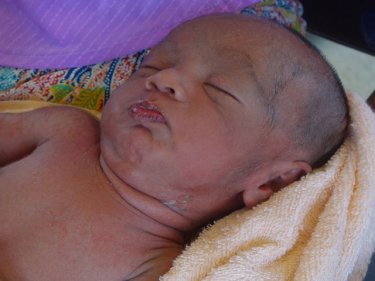




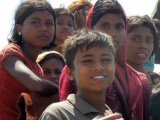
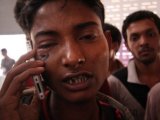
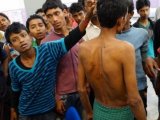

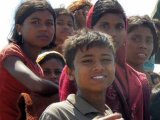
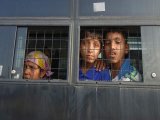


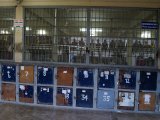

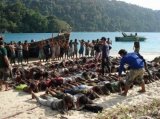


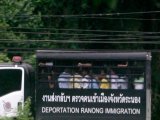




What is the role of the Thai Red Cross in this?
They are supposed to provide assistance without regard to discrimination as to nationality, race, religious beliefs etc. and above all endeavour to relieve the suffering of individuals, and to give priority to the most urgent cases of distress. Why are they not involved?
Posted by Pete on January 7, 2014 07:36
Editor Comment:
Because it's a s-e-c-r-e-t, Pete.